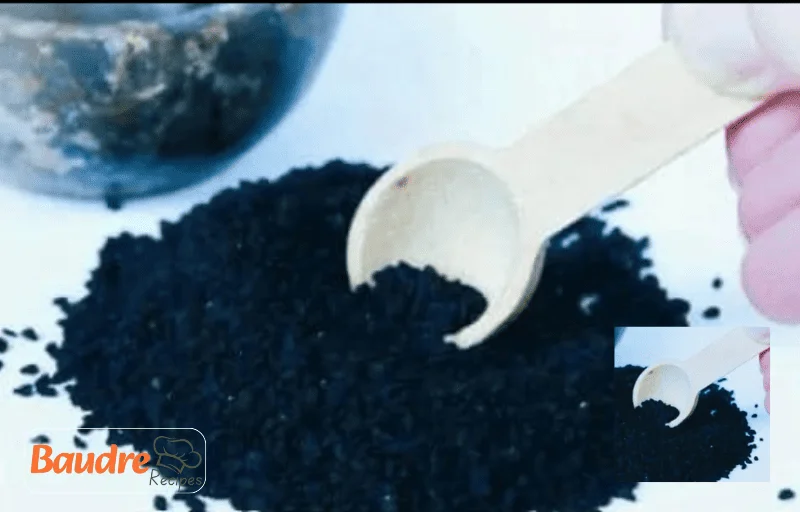Throughout history, certain plants have been revered not only for their culinary uses but also for their remarkable medicinal properties. One such plant is black cumin (Nigella sativa), a small yet powerful seed that has earned global recognition for its potential to heal a variety of ailments. Black cumin is mentioned in both the Bible and the Quran, often described as a plant capable of curing all diseases—an assertion that modern science is starting to confirm.

A Sacred Plant with a Rich History
Black cumin seeds have long been cherished in ancient texts, where they are praised for their impressive health benefits. In the Bible, particularly in the book of Isaiah, black cumin—referred to as “kesah” or “ketsah”—is recognized for its value and symbolic significance. Similarly, in the Quran, black cumin is identified as a plant that can cure every disease, except for death itself. This strong endorsement emphasizes its historical role as a universal remedy.
The reverence for black cumin is not limited to religious texts. The ancient Egyptians, for instance, placed black cumin seeds in the tombs of pharaohs, including that of Tutankhamun, as part of their burial rituals. Greek physicians like Hippocrates and Dioscorides also turned to black cumin for treating various health issues. Its continued use throughout history underscores the lasting belief in its healing properties.
Modern Science Confirms Its Benefits
While the idea of a plant curing all ailments may seem exaggerated, modern research on black cumin seeds has revealed an impressive range of health benefits. Here’s how this ancient remedy aligns with today’s scientific understanding:
- Immune System Support
Black cumin seeds contain thymoquinone, a compound known for its antioxidant and anti-inflammatory effects. Thymoquinone helps enhance the immune system, making the body more resilient against infections and diseases. - Potential Cancer-Fighting Properties
Research suggests that thymoquinone may possess anticancer qualities, helping to inhibit the growth of cancer cells and reduce tumor size in animal models. While further studies are needed, early results suggest black cumin’s potential in supporting cancer treatment. - Digestive Health
Traditionally used to treat digestive problems like bloating, gas, and indigestion, black cumin seeds help reduce inflammation in the digestive tract, promoting better gastrointestinal health. - Anti-Inflammatory Effects
Chronic inflammation is linked to numerous health issues, including arthritis, diabetes, and cardiovascular disease. Black cumin seeds have natural anti-inflammatory properties that can help alleviate these conditions. - Respiratory Health
Known for its ability to ease respiratory issues, black cumin seeds may help manage symptoms of asthma, bronchitis, and allergies. Their ability to open airways and reduce inflammation is particularly beneficial for those with breathing difficulties. - Skin and Hair Care
Rich in vitamins and essential fatty acids, black cumin oil is frequently used in skincare products for its moisturizing and anti-aging effects. It also promotes hair growth and helps soothe irritated scalps. - Blood Sugar Regulation
Studies suggest that black cumin seeds may help regulate blood sugar levels, making them a valuable addition to the diets of individuals with diabetes.
Ways to Incorporate Black Cumin Seeds Into Your Diet
Adding black cumin seeds to your daily routine is easy and flexible. Here are several ways to incorporate them into your meals:
- As a Spice: Sprinkle ground black cumin seeds on salads, soups, roasted vegetables, or meats to add a nutty, slightly peppery flavor.
- In Beverages: Mix a teaspoon of black cumin seeds or oil into warm water, tea, or smoothies for an added health boost.
- Topical Application: Use black cumin oil for skin irritations, acne, or dryness to reap its soothing benefits.
- Supplements: For convenience, you can take black cumin seed capsules or extracts, which are available at most health food stores.
However, it’s important to consume black cumin seeds in moderation. While generally safe, excessive intake may lead to mild side effects such as nausea or allergic reactions in some individuals. Always consult a healthcare professional before introducing new supplements into your routine.
A Timeless Healing Tradition
The biblical reference to black cumin as a plant capable of healing all diseases reflects humanity’s age-old quest for natural wellness. Today, scientific research continues to explore and reveal the mechanisms behind its healing powers, bridging ancient wisdom with modern medicine.
Whether you are drawn to black cumin seeds for their historical significance, nutritional benefits, or therapeutic potential, there’s no denying their timeless appeal. By embracing this humble seed, you’re tapping into a long-standing tradition of healing that transcends generations—a gift from nature that nourishes both body and soul.
Next time you encounter black cumin seeds, remember their rich legacy and the healing potential they hold for a healthier future.
